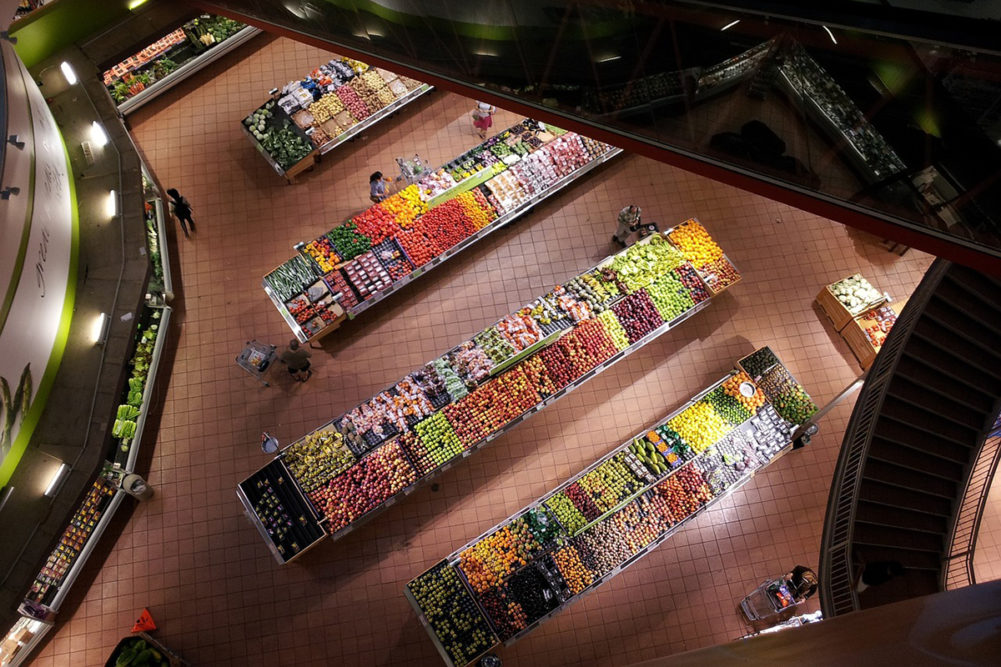Arlington, Va.-based FMI – The Food Industry Association has extended its highly successful “Power of” series of studies to include plant-based. The following are ten things for retailers to keep in mind while planning their plant-based growth.
1. Confusion about plant-based
Shopper feedback indicates confusion about plant-based foods and beverages, demonstrating a lack of knowledge about key attributes and characteristics of these options. The confusion isn’t necessarily surprising, given the evolving nature of this topic and absence of widely accepted definitions for these categories.
2. Efforts to select these foods and beverages
Almost half of all shoppers put either a lot or some effort into selecting plant-based foods and beverages, although many find this exercise to be difficult. Members of younger generations, particularly millennials, are more likely than Gen X and Boomer consumers to say they put more effort into selecting plant-based foods and beverages.
3. Importance of taste and nutrition
Consumers point to taste and nutrition as key reasons for trying meat, seafood and dairy plant-based alternatives. However, digital ethnographic consumer research conducted for this report found sustainability is gradually emerging as an important aspect for certain groups of consumers — especially in relation to the terms these shoppers use, specifically “ethical farming” and “cruelty-free proteins.”
4. Top foods consumed
Shoppers were asked about their consumption of the different categories of plant-based foods and beverages. Those most likely to be regularly consumed are naturally plant-based — fruits and vegetables (75%) and beans/nuts/grains (47%). Plant-based foods considered alternatives to other products attract considerable usage. More than 40% of shoppers at least occasionally eat a meat, dairy or seafood alternative, but dairy alternative sales are more than twice those of meat alternatives.
5. Meat-eating habits
Most shoppers identify as meat eaters, considering themselves to specifically be omnivores (15%) or carnivores (21%) or eating what they want (43%). About one in ten (9%) identify as being flexitarians, while a similar share follow approaches that avoid meat — such as vegetarian (6%), vegan (2%) or pescatarian (2%).
6. Key shopper demographics
Those regularly consuming alternatives to meat, dairy, and seafood are more likely to be Gen Z or millennials. Almost half live in households with children. Nearly a third have household incomes of more than $100,000. These consumers have higher grocery spends and are more likely to be online shoppers.
7. Trial and experimentation
Curiosity is a major factor in trying plant-based foods and beverages, which reflects the experimental side of shopper behaviors. Consumers show considerable willingness to try plant-based items from the 10 categories studied. Among all shoppers, almost half are at least somewhat open to plant-based animal alternatives, and the percentage is greater among those shoppers who regularly eat items from at least one category (as defined in this report) of the meat, dairy and seafood alternatives.
8. Barriers to repeat purchases
Those who tried animal product alternatives once or twice but did not continue said taste was the biggest reason. This was highest for the dairy milk alternatives, followed by the meat alternatives and seafood alternatives. Cost was also an important factor.
9. Location of items
Shoppers express varied opinions on where they want to find plant-based items in food stores. Interestingly, for meat alternatives, the top choice is not the meat department. Instead, it’s a designated plant-based foods section and the frozen foods section, followed by the meat department.
10. Future buying trends
Shoppers’ outlooks indicate there may be considerably higher consumption of plant-based foods and beverages in the future. About a third expect to increase consumption a little, and 16% a lot. Of those who regularly eat plant-based items, 35% said they will consume a little more, and 27% a lot more. Currently, repeat purchase behaviors of plant-based foods and beverages are lower than shoppers’ expectations for future consumption.

